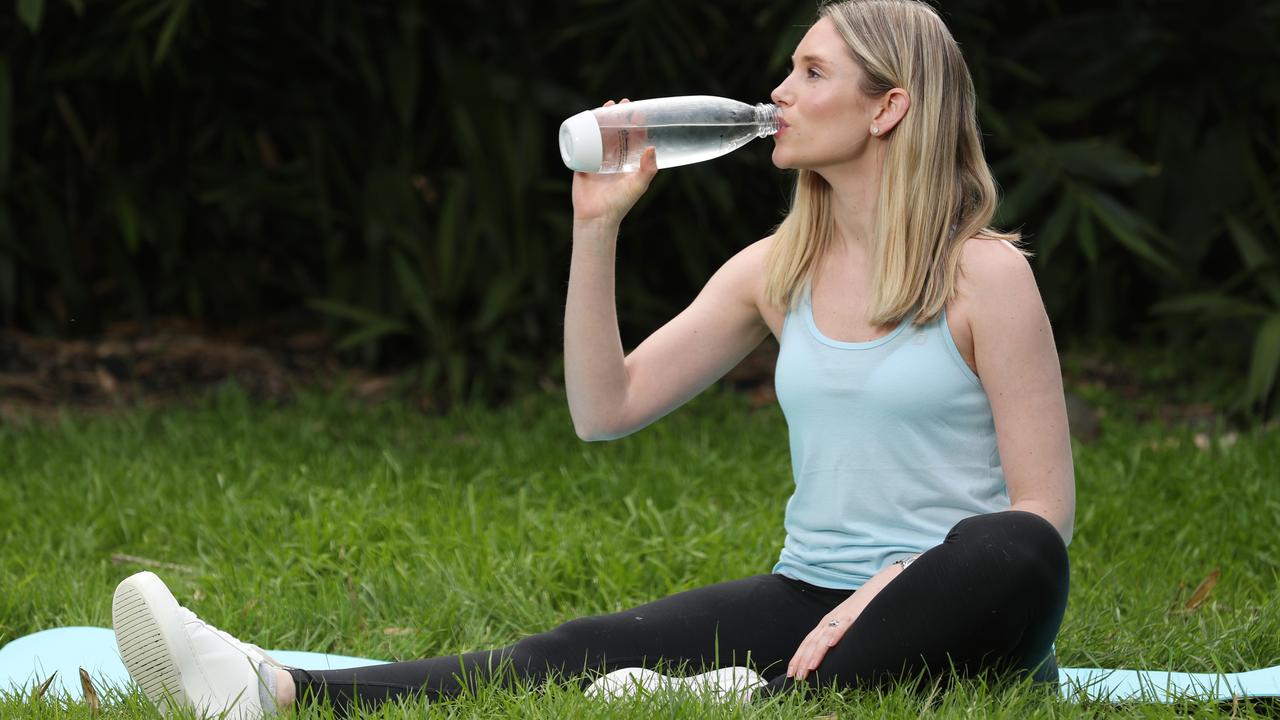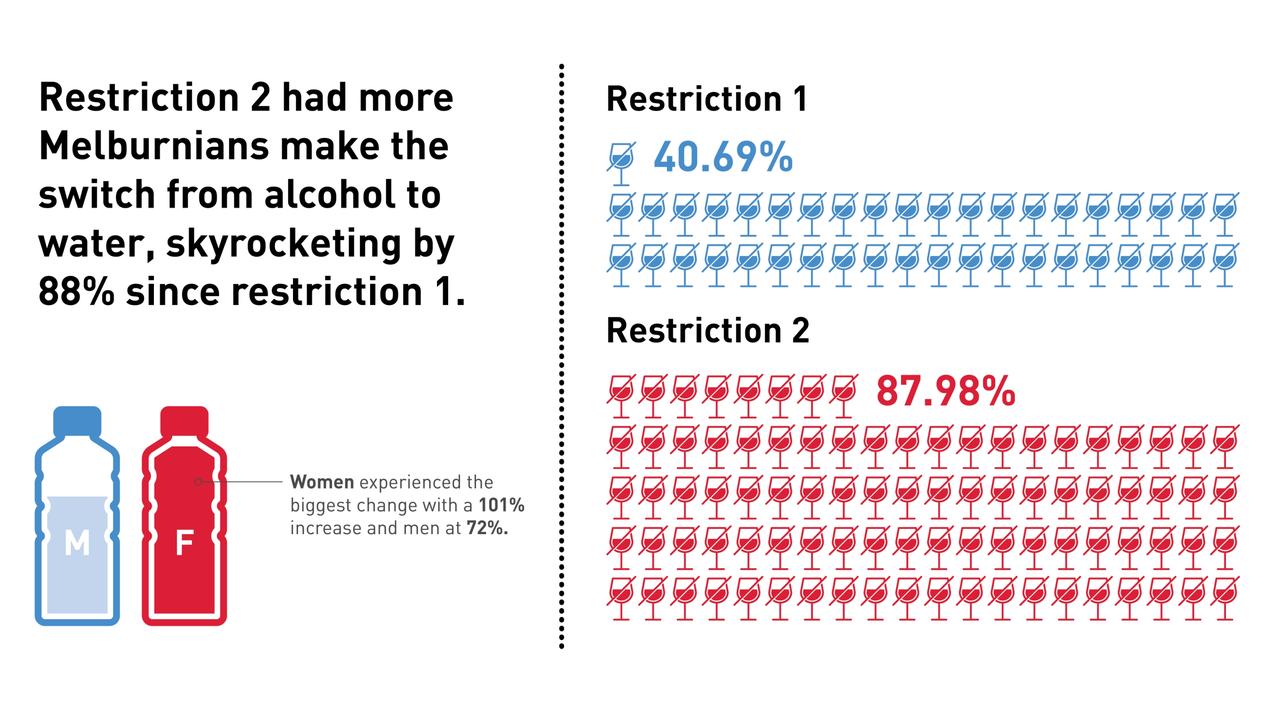Melburnians cut back on drinking alcohol during second COVID lockdown
There is a major difference in how Melburnians are looking after their wellbeing during the second lockdown compared to the first.

Melburnians have drastically ditched the booze in favour of water while stuck at home during the city’s second lockdown.
There will be no citywide hangover when restrictions finally ease with new data collected from more than 7500 Melburnians revealing an 88 per cent switch in people cutting back on alcohol in favour of water.
Experts say the change in drinking habits can be explained by people taking the second lockdown “more seriously” than the first, with women most likely to switch up their beverage of choice.
Women swapping from alcohol to water increased by 101 per cent between the two restriction periods, with 72 per cent of men also changing their habits, data from the Medibank Live Better Rewards app showed.
Those aged 65 and older were most likely to switch from booze to water with a 120 per cent increase.
Melbourne lawyer Claire Walczak, 32, who, like most people has been working from home full-time for most of this year, said she had taken the second lockdown more seriously.
The Brighton mum said she made a conscious effort to change some unhealthy habits impacting her work-life balance.

“With the first lockdown it was a bit exciting, considered to be a bit of a novelty I guess, so there wasn’t any planning to what I’d be doing for health and wellbeing given that gyms were closed,” she told NCA NewsWire.
“For me it was really important to have a morning ritual where I go on a 5km walk with my 16-month-old baby Henry along the beach and that really sets the scene for my entire day.”
Ms Walczak said her alcohol intake probably went up a little bit during the first lockdown because it was a bit of a novelty.
“I was home and I guess at the end of the day it felt like a bit of a reward having a glass of wine, so I was probably more conscious of that the second time around and ensuring I had a number of alcohol free days a week,” she said.

She said increasing her exercise and water intake, and cutting back on coffee, had improved her overall energy and she felt a lot more “on the ball and brighter each day”.
She said morning exercise was something she would carry on beyond the lockdown.
Among the other big changes in health and wellbeing habits by Melburnians during the second lockdown compared to the first was stretching, which was up 201 per cent.
App users aged 35 to 44 were the most likely to try to improve their flexibility with a 251 per cent increase.

Reading also increased by 76 per cent, as did acts of kindness, which rose by 78 per cent.
Strength training was also up 45 per cent, which was driven by a women, with a 55 per cent increase females tracking their strength training activity.
Women’s health and wellness facilitator, pilates instructor and former winter Olympian, Steph Prem, said people seemed to let themselves go a little more during the first lockdown.
“We didn’t have as much of an intake in our classes in the first lockdown as we have now,” she said.

“I think there’s been a really big shift to people seeing the link between their physical health and their mental health for this lockdown.
“People have realised they need to not just strengthen their musculoskeletal system but I think people have realised there’s a direct link to mental health and stress related disorders.”
Ms Prem, who has run classes out of her home in Albert Park, said her clients were definitely taking more alcohol-free days now and they had seen a huge uptake in their stretching, mindfulness, pilates and yoga classes.
Australian actor and chiropractor Tim Robards said lockdown had reminded him how getting the simple stuff right was the most important.

He said before COVID it was all about what was the best kale smoothie or superfood, but now it was just about getting some fresh air, exercise, good nutritious food and drinking plenty of water.
“One of the trends that we’ve seen is people are using that one or two hours they have to get outside and now getting outside is associated with exercise because that’s the only reason you’re allowed to leave the home,” he said.



